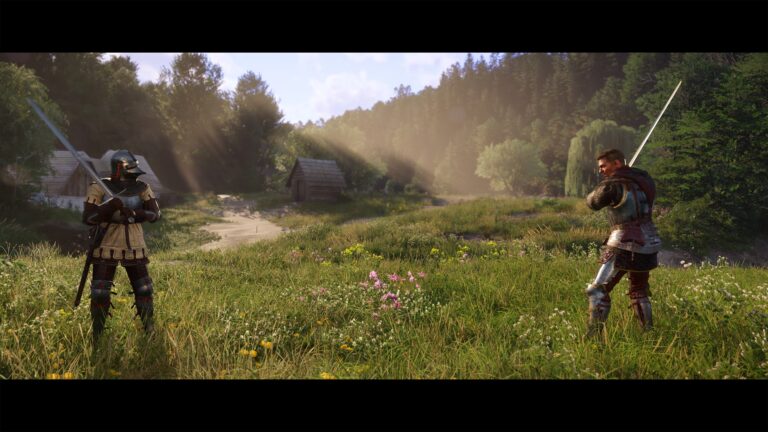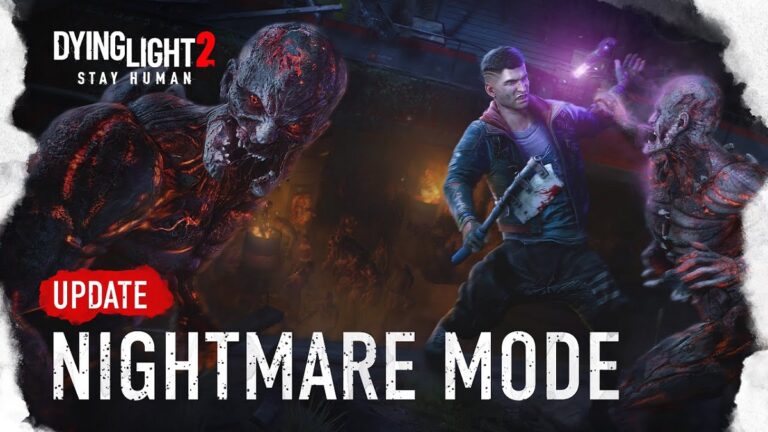OGN Vs Riot: A Brood War Déjà vu
Over the last few weeks major controversies have circled around the broadcasting rights and other factors regarding Ongamenet’s League of Legends Champions Korea (LCK). Comparisons between the Blizzard-Kespa dispute are inevitable, and Riot’s history of morally questionable business practices and track record of forcing out competition has come back into the spotlight. With Riot exerting control of their IP, the future of South Korean Esports hangs in the balance. In this piece I hope to break down the complex political structure that is League of Legends and South Korean Esports, as well as the history of the scene that got us where we are today.
To be specific, the issue at hand is Riot splitting the broadcast rights for the League Championship Series (LCS) in Korea 50/50 between Ongamenet and SpoTV, the main broadcasters for Esports in South Korea. Ongamenet started and owns the premier circuit in Korea for League of Legends, the LCK, which they have built up over the years starting well before LoL became the juggernaut it is. Back then League was just starting to gain traction to compete with StarCraft and other Esports as well as other games in general, with Riot offering major incentives to both streams and tournament organizers to get on-board. Right around the start of season 3 Post IPL 5, Riot started monopolizing the scene, cutting off the rights to broadcast tournaments and imposing major restrictions on others, including DOTA 2 and supposedly other competing games from being broadcast during IEM events, similar to how Riot attempted to control what individual pros could broadcast, with Hearthstone being at the center of a debate over LCS contracts.
Within the first year of a Korean server for League going online, OGN with Riot’s assistance was able to build up a relatively successful circuit in Korea, a market wholly different from NA or EU in terms of retail environment and monetization. CJ, OGN’s parent company and one of the largest corporations in Korea invested heavily into the scene, along with other major corporations and sponsors acquiring their own teams. This growth allowed OGN to flush out their competitive circuit in Korea in 2014, with 3 core Champions tournaments as well as the masters series. Towards the end of 2014 Riot stepped in to unify the logistics of all the major events around the world, and Champions would become the LCK, transitioning from regular tournaments to a league. However the new LCK would be moving away from it’s subscription model for VODs and higher quality and becoming free in it’s entirety, a move spearheaded by Riot with promises of covering costs from lost revenue. However recently information and statements from OGN have come to lite suggesting Riot’s contributions covered only around half the operation costs.
So here we are today in late 2015, with Riot forcing OGN to effectively divide it’s broadcast by 50%, with SpoTV now taking on the other half. This in effects handcuffs OGN’s financial success to SpoTV, as well as creating increased difficulties in securing event sponsors. Riot’s justification centers on growing the scene in Korea, and allowing for better scheduling with matches being broadcast right after another with minimal delay, though many fans remain skeptical. Specifically SpoTV will have to source new casters as well as keeping their production up to snuff, which in effect may drag down the overall quality of games depending on how well these variables are handled.
The other major player is the Korean Esports Association, otherwise known as KeSPA who oversees and managed the scene as well as its players to a major extent. And while KeSPA has claimed recently that they are not directly involved in the dispute and have only commented on the proceedings, conflicting reports from multiple organizations continue to make the situation confusing. The fog of war is thick, with reports of who exactly is involved and how much influence they may have often contradicting each other. Regardless the core issue at hand is intellectual property: Riot holds the exclusive rights to League of Legends and in effect controls where, when, and by who their game can be broadcasted. This power is equivalent to a single entity owning the rights behind Football (American or European, or any major sport for that matter). However it makes sense that KeSPA would do everything in its power to prevent a major IP dispute, and to discuss why we have to travel back to the early days of StarCraft 2 and Brood War in it’s halcyon days.
In what amounted to a prolonged public conflict over a number of years, KeSPA and Blizzard fought over the IP and broadcasting rights for the various Starleagues that acted as platforms for Brood War, with the eventual outcome resulting in the major broadcasters sticking with Broodwar well after SC2’s rise to prominence. The details of the dispute are numerous, but the condensed version is at the start of 2007 the IEG Group had authored and signed an exclusive broadcasting contract with KeSPA that caused much strife between them and OGN as well as MBC Game, after KeSPA started charging licensing fees to those 2 broadcasters. Blizzard saw this as a violation of their IP rights, while KeSPA thought Blizzard simply wanted to ‘cash-in’ after they had expanded and grown the Brood War scene after so many years. Allegations surfaced of retaliation against GOMTV owner Gretech, a broadcaster Blizzard had not only supported financially but also one that specifically recognized Blizzards’s IP rights.
This culminated in GOMtv’s Starleagues no longer being officially sanctioned and talks between KeSPA and Blizzard falling apart in April of 2010. This would lead KeSPA to break their NDA and announce that Blizzard’s position and requests were irreconcilable, which they claimed included prior approval of all leagues, sponsors, marketing, licensing fees, broadcasting plans, etc. That next month Gretech was granted exclusive rights to both Brood War and SC2 for 3 years. KeSPA and Gretech entered into closed negotiations, while OGN was able to sign an agreement for that year’s OSL, with MBC Game dropping out entirely. After much internal conflict, multiple lawsuits, and compromises Gretech eventually gave up their rights to Brood War and they reverted back to Blizzard. By May 2011 OGN and MBC Game would be broadcasting Brood War matches officially with Blizzard’s blessing, the result of many hours of mediation mandated by a South Korean court.
StarCarft 2 however was an entirely different ball game, as Blizzard’s invitation to pro teams and players to compete in exhibition matches at the time were turned down. The balance of power between Blizzard and KeSPA had reached a tipping point, and GOMtv would retain it’s exclusive rights to SC2 as the Global StarCraft 2 League, known simply as the GSL would become the pinnacle of competitive play to many. In the years that followed major teams in the Brood War scene would disband, MSL would fold as MBCGame reoriented its focus towards music videos, and a match fixing scandal in 2010 would rock the scene to it’s very core. It was clear Brood War would never be the same again, and in early 2012 KeSPA and Blizzard drafted agreements for what would be a transition to Starcraft 2, with the first officially KeSPA sanctioned tournaments taking the form of Proleague and OSL as Brood War would drop from the leagues shortly thereafter.
So here we are in 2015 with nearly the exact same situation, only the reaction could not be farther from the past. In recent press announcements KeSPA has not only apologized for how it handled the StarCraft dispute, but says it’s taking a back seat to the current situation between Riot and OGN. However OGN claims that in nicer words Riot and KeSPA are throwing them under the bus, with an official press release stating that the division of broadcasting rights were never brought up during talks with Riot with regards to LCK 2016, and they had received notice later on that a decision had been made by Riot Korea, even though OGN claims the proposed benefits could be achieved without a split broadcast on their part. Allegations of backhanded actions and shady dealings are nothing new in Esports, nor are they in any industry, though this particular case is particularly disappointing in my personal opinion, though not in any way unexpected. Multiple 3rd-party news sites have also reported on the issue with their own insight and information.
From KeSPA’s standpoint, they want to prevent the scene from fracturing as it had before, OGN doesn’t want to get screwed out of their own long-running event series or have it’s well-earned reputation tarnished, and Riot wants more if not full and unilateral control over the entire scene, even going as far as to file a trademark for the LCK brand. SpoTV obviously stands to benefit immensely from attaching themselves to a well-established brand, as well as everything that would be inherent to running in part the premier tournament for League of Legends and Korea as a whole. Back before IGN Pro League imploded, many discussions between myself and other industry professionals revolved around NFL style consolidation, and how the IP owner’s implicit or implied rights to their properties would eventually be used and even abused to force compliance on behalf of both event organizers and players to the benefit of the IP holders, and the majority of our predictions have become reality it would seem.
From a fan perspective the biggest downside is an expected drop in quality from matches produced by SpoTV, especially with Erik “DoA” Lonnquist and Christopher “MonteCristo” Mykles, possibly the most well-known and talented casters in LoL remaining absent on the second broadcast, as they provide commentary for OGN’s English stream. Like any Esport or video game in general, at the center of a successful property are the fans and the community that helped build your game into what it is now. Whenever dirty laundry starts getting aired in public, the fans are typically the first to speak up, made even more important in Esports by the reality that both players and industry professionals may be gagged by their obligations and contracts. Most recently we saw this with CS:GO’s R8 Revolver update, which among other changes such as changing established timings and rile weapon spread introduced the titular revolver; comically broken in ever sense of the word, it blows my mind both figuratively and literally in-game that they would push these changes to the live servers without prior testing and feedback, with players and tournament organizers quick to voice their opinions.
However at the end of the day the IP owners will retain sole control over their property for the time being, and while the specifics of copyright law could be argued to death little progress being made, the paradigm we currently find ourselves in is one where creators have nearly-exclusive control over their content for decades to come, if not centuries. The real questions that remain are those of coexistence and symbiotic relationships; working together rather than against each other. Ultimately the future will rest in Riot’s white fist, as well as with the fans and paying customers that make League of Legends the largest single piece of electronic entertainment on Earth.
Ongamers article regarding LCS Contracts: http://www.ongamers.com/articles/riot-season-4-lcs-contracts-stipulate-players-cannot-stream-dota-2-blizzard-games/1100-261/
Korean news article regarding Riot-OGN Drama: http://sports.news.naver.com/sports/index.nhn?category=e_sports&ctg=news&mod=read&office_id=468&article_id=0000087204&date=20151208&page=1
OGN Statement: http://www.inven.co.kr/webzine/news/?news=147746&site=lol
KeSPA Statement: https://www.facebook.com/kespalol/posts/916001148488979
Riot LCK Trademark report: http://www.inven.co.kr/webzine/news/?news=147916&iskin=esports
Historical information: http://wiki.teamliquid.net/starcraft/KeSPA
No related posts.









